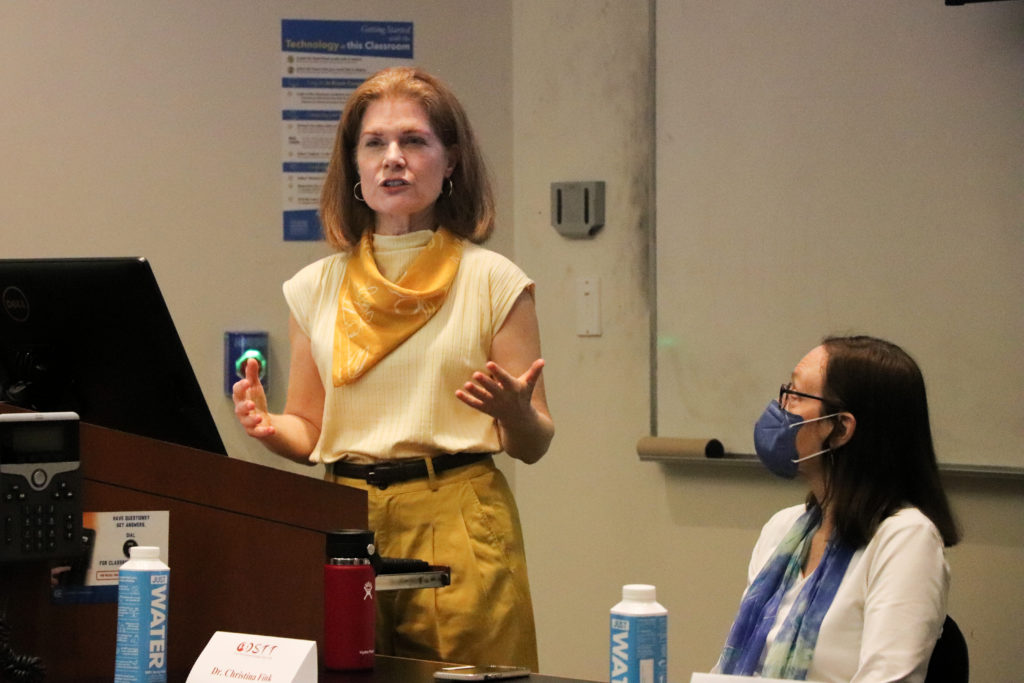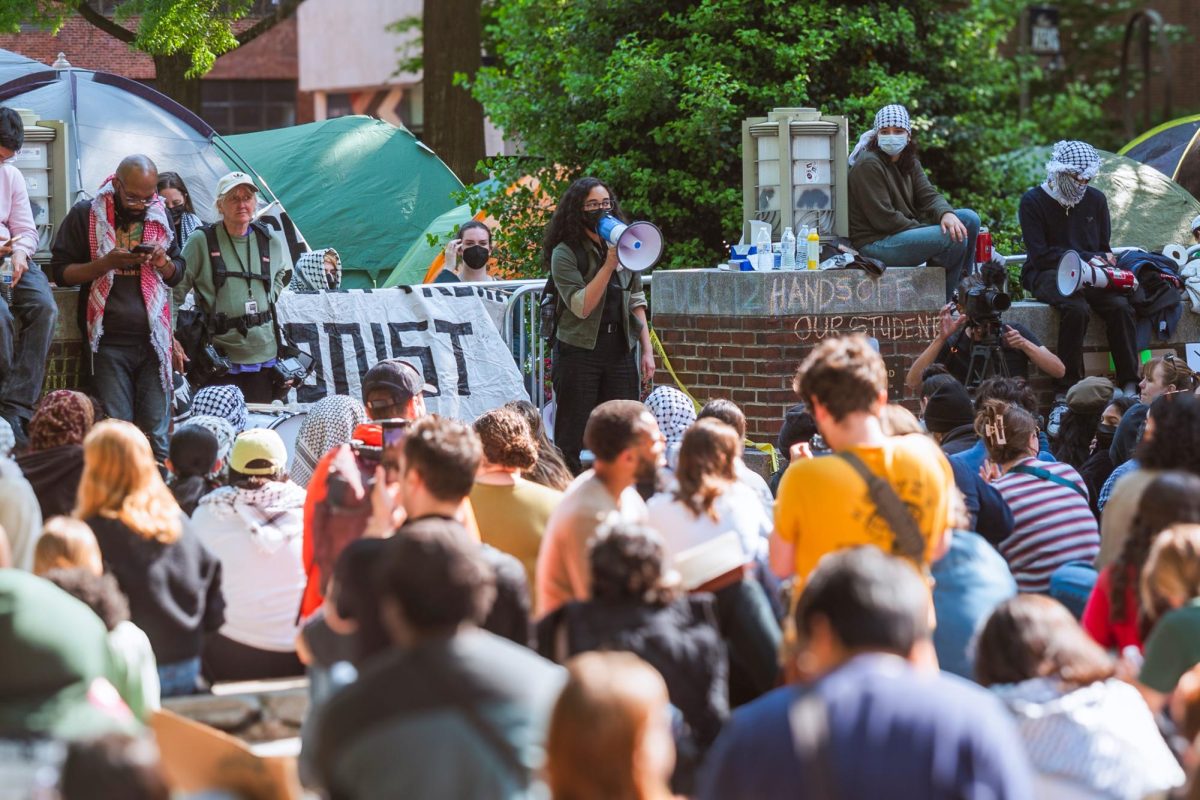A panel of experts discussed the role of gender in politics at the Elliott School of International Affairs on Thursday.
Experts in anthropology, international affairs and gender inequality discussed the importance of female representation in politics, the role of masculinity in feminist movements and the socioeconomic vulnerabilities of women and disadvantaged communities in natural disasters. The China Development Student Think Tank, a student organization with a focus on topics like Chinese development and U.S.-China relation, hosted the event, which was moderated by Zimo Yang, the vice president of the CDSTT.
Christina Fink, a professor of practice of international affairs at GW, said female representation in legislative bodies often increases advocacy for household issues like childcare, equal pay and countering corruption while promoting more diverse perspectives in politics.
“The more different perspectives you get, the more different experiences in society are represented,” Fink said.
Fink said women in politics face monetary, cultural and institutional pressures in their work like issues with fundraising for campaigns. She said these forces weaken female representation and perspectives in legislatures globally.
“It can be harder for women to raise money because of less connections with connected individuals in politics,” Fink said. “If the party selects the candidates, as much as you might want to run, the party might not want to bring women into the party.”
Jane Henrici, an anthropologist and professorial lecturer at GW, said women and disadvantaged communities were at increased risk of vulnerabilities in natural disasters and hazards.
Henrici further discussed her research of food inequalities among families quarantined in Wuhan, China at the beginning of the COVID-19 pandemic. In her findings, Henrici said non-homeowners and those with small children had increased difficulty with obtaining essentials.
“What we found is that those who were homeowners in Wuhan, who owned their own home, did somewhat better,” Henrici said. “They reported somewhat better access to food and to other services.”
The panel also discussed the role of men in feminist movements and increasing the role of women in politics.
Laxman Belbase, a lecturer at GW and the co-director of the Global Secretariat of MenEngage Alliance, which works with men and boys to understand gender equality, said the examination of masculinity can help more people advocate for women’s issues by making them think deeper about how men and boys are socialized to interact with women.
“There is an importance to look into our own lives as men because the way we act is not healthy,” Belbase said.











